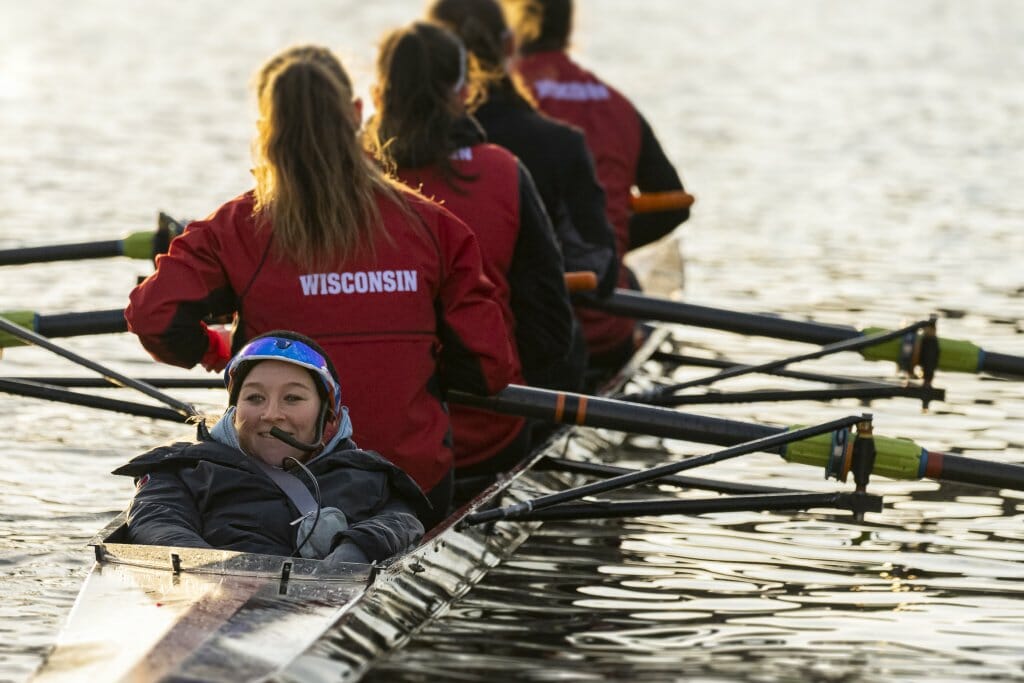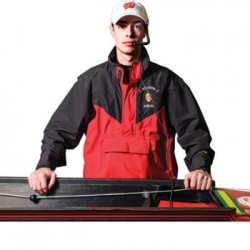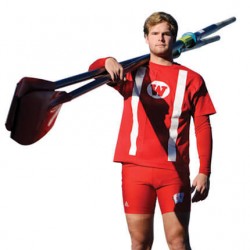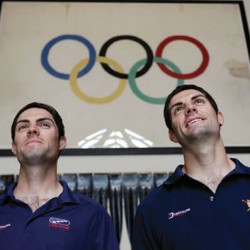Split-Second Decisions
As coxswain, lightweight rower Emma Collins x’24 analyzes a race as it happens.

Since there’s no playbook to being a coxswain, “no one can really tell you what to do,” Collins says. “You have to learn from experience.”
Emma Collins x’24 has been called an architect, quarterback, navigator, and coach, but her official position on the UW women’s lightweight rowing team is coxswain.
From the bow of the boat, Collins’s job is to analyze the race as it happens and make split-second decisions regarding pace, rhythm, and course for the team. “Coxing is definitely more of a mental exercise, whereas rowing is physical,” she says. “You are taking everything in as it goes on.”
Lightweight rowing involves athlete weight restrictions and slightly smaller boats, and at four-foot-11, Collins is a natural fit. Growing up in coastal Duxbury, Massachusetts, she spent most of her life sailing and rowing. “I definitely have a love for the water,” she says. “I pretty much spend every day possible of my life on it.”
After being recruited by both men’s and women’s rowing programs, Collins committed to Wisconsin. When she arrived on campus during a time of COVID restrictions, the team looked much different than it does today. Since the program was unable to take walk-ons, who usually account for some 50 percent of the roster, Collins coxed most of the lightweight races in her freshman season. At times, she was the only coxswain on the team.
Taking on a leadership position as a first-year student was nerve-racking. “I hated having to tell seniors what to do or having to hold them to a high standard,” she says, “but it’s definitely been a rewarding journey.”
Now Collins is heading into junior year as a mentor to a team that has doubled in size, including many coxswains.
“I was lucky to have great mentoring as a freshman, so I’m glad to be there for [the current team] and hold their hands a little bit, but also push them to grow,” she says.
From daily erg workouts, weekly meetings to analyze race audio and videos, and indoor tank trainings to observe strokes, coxswains work year-round to stay engaged with the rowers. The months of mundane indoor winter training really pay off when they return to the water in the spring.
Collins will spend this summer in the Caribbean teaching sailing before returning to the UW to complete her studies in communications and graphic design. After graduation, she hopes to continue coxing on the national level, or maybe even continue the program’s tradition of competing as a Badger Olympian. Whatever she pursues, she’ll never be off the water.
Published in the Summer 2023 issue



Comments
No comments posted yet.